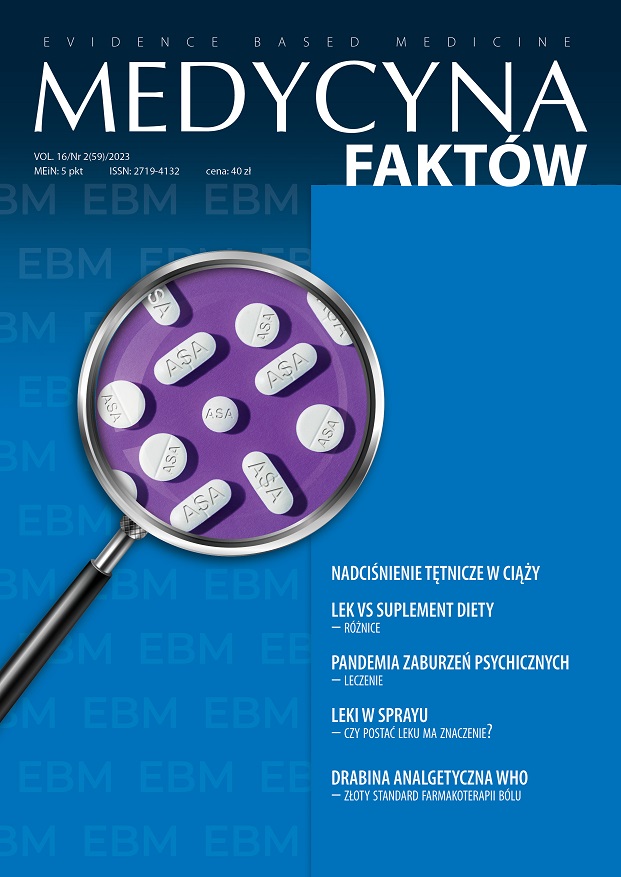Glycine – an endogenous amino acid with pleiotropic properties Review article
Main Article Content
Abstract
Glycine is an endogenous amino acid involved in many physiological processes, such as building proteins or inhibiting neurotransmission. Many studies have shown its anti-inflammatory, immunomodulatory and cytoprotective effects. The mechanism of action of glycine remain incompletely understood, but many of the effects are due to the inhibition of calcium-dependent processes. Supplementation of glycine may prove beneficial in the course of diseases such as metabolic syndrome, inflammatory bowel disease or cystic fibrosis. The addition of glycine to acetylsalicylic acid administered orally as part of antiplatelet therapy significantly improves drug tolerance. The pleiotropic effect of glycine may in the future contribute to the wider use.
Article Details
Copyright © by Medical Education. All rights reserved.
References
2. Newgard CB, An J, Bain JR et al. A branched-chain amino acid-related metabolic signature that differentiates obese and lean humans and contributes to insulin resistance. Cell Metabol. 2009; 9: 311-26.
3. Guasch-Ferré M, Hruby A, Toledo E et al. Metabolomics in prediabetes and diabetes: a systematic review and metaanalysis. Diabetes Care. 2016; 39: 833-46.
4. Li X, Sun L, Zhang W et al. Association of serum glycine levels with metabolic syndrome in an elderly Chinese population. Nutr Metab. 2018; 15: 89.
5. Rom O, Liu Y, Liu Z et al. Glycine-based treatment ameliorates NAFLD by modulating fatty acid oxidation, glutathione synthesis, and the gut microbiome. Sci Transl Med. 2020; 12: eaaz2841.
6. Ding Y, Svingen GFT, Pedersen ER et al. Plasma glycine and risk of acute myocardial infarction in patients with suspected stable angina pectoris. J Am Heart Assoc. 2015; 5: e002621.
7. Wittemans LBL, Lotta LA, Oliver-Williams C et al. Assessing the causal association of glycine with risk of cardiometabolic diseases. Nat Commun. 2019; 10: 1060.
8. Zhong Z, Wheeler MD, Li X et al. L-Glycine: a novel antiinflammatory, immunomodulatory, and cytoprotective agent. Curr Opin Clin Nutr Metab Care. 2003; 6: 229-40.
9. Yang Z, Liao SF. Physiological Effects of Dietary Amino Acids on Gut Health and Functions of Swine. Front Vet Sci. 2019; 6: 169.
10. Koopman R, Caldow MK, Ham DJ et al. Glycine metabolism in skeletal muscle: implications for metabolic homeostasis. Curr Opin Clin Nutr Metab Care. 2017; 20(4): 237-42.
11. Ham DJ, Gardner A, Kennedy TL et al. Glycine administration attenuates progression of dystrophic pathology in prednisolone-treated dystrophin/ utrophin null mice. Sci Rep. 2019; 9: 12982.
12. Vieira CP, Prado De Oliveira L, Da Ré Guerra F et al. Glycine Improves Biochemical and Biomechanical Properties Following Inflammation of the Achilles Tendon. Anat Rec. 2015; 298: 538-45.
13. Howard A, Hirst BH. The Glycine Transporter GLYT1 in Human Intestine: Expression and Function. Biol Pharm Bull. 2011; 34(6): 784-8.
14. Stoffels B, Türler A, Schmidt J et al. Anti-Inflammatory Role of Glycine In Reducing Rodent Postoperative Inflammatory Ileus. Neurogastroenterol Motil. 2011; 23(1): 76-e8.
15. Yang Y, Fan X, Ji Y et al. Glycine represses endoplasmic reticulum stress-related apoptosis and improves intestinal barrier by activating mammalian target of rapamycin complex 1 signaling. Anim Nutr. 2022; 8: 1-9.
16. Effenberger-Neidnicht K, Jägers J, Verhaegh R et al. Glycine selectively reduces intestinal injury during endotoxemia. J Surg Res. 2014; 192(2): 592-8.
17. Vargas MH, Del-Razo-Rodríguez R, López-García A et al. Effect of oral glycine on the clinical, spirometric and inflammatory status in subjects with cystic fibrosis: a pilot randomized trial. BMC Pulm Med. 2017; 17: 206.
18. Imenshahidi M, Hossenzadeh H. Effects of glycine on metabolic syndrome components: a review. J Endocrinol Invest. 2022; 45(5): 927-39.
19. Kusche W, Paxinos R, Haselmann J et al. Acetylsalicylic acid tablets with glycine improve long-term tolerability in antiplatelet drug therapy: results of a noninterventional trial. Adv Ther. 2003; 20(5): 237-45.

